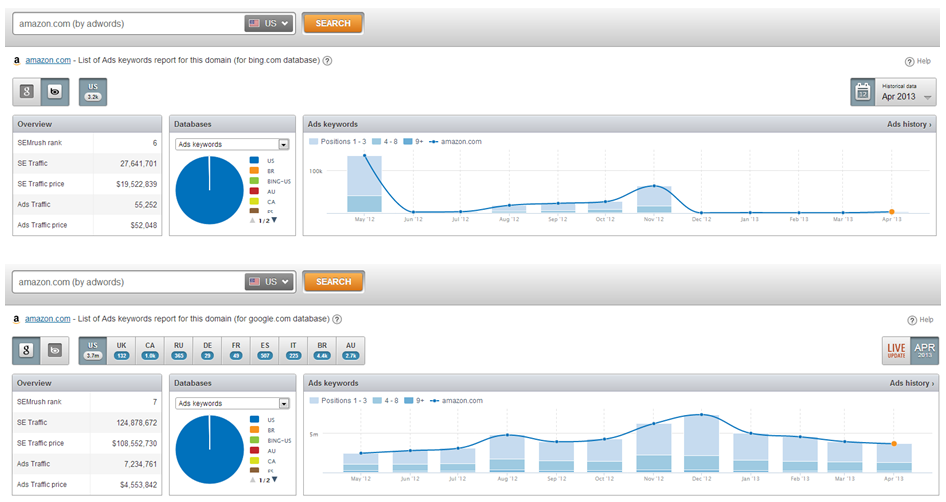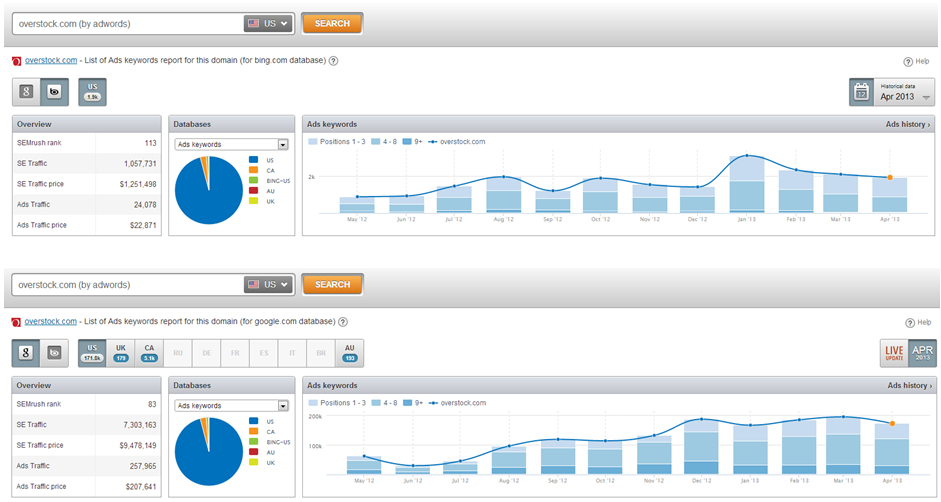Why You Should “Bing It On” In Your Online Marketing
Bing commercials have been running rampant on TV lately — they have amped up their service and definitely have something to prove. Among other things, they’re becoming increasingly integrated into Windows 8, possibly increasing public interest in Bing. For many people (online marketers in particular), there is a tendency to forget that Bing even exists […]
Bing commercials have been running rampant on TV lately — they have amped up their service and definitely have something to prove. Among other things, they’re becoming increasingly integrated into Windows 8, possibly increasing public interest in Bing.
For many people (online marketers in particular), there is a tendency to forget that Bing even exists — after all, Google is the head honcho. But market shares are increasing for Bing, having recently risen to above 17%. Bing also has some great things to offer marketers. They currently have a lovely SEO Analyzer, for example, and have announced a keyword distribution graph to be launched sometime in the near future.
With Bing growing each day, optimizing for and advertising on Bing should not be ruled out when creating your online marketing strategy. Bing may never reach the status of Google — but when it comes to your Internet marketing, you should always take advantage of any avenue that you think may be beneficial.
Your PPC Budget — Google Vs. Bing
When PPC budgets are established, many marketers commit that budget to one place and once place only: Google. This is a bit of a shame, as there is a great deal of opportunity for promotional success through the use of Bing as well as Google. It’s about diversifying and trying something new that maybe your competitors haven’t thought of yet. Or maybe they have — either way, you’ll never know the success you could have if you don’t try.
Let’s take a look at 2 major e-commerce sites — Amazon and Overstock — to see how they are utilizing Bing for paid search. Amazon will be the first:
Amazon is obviously spending a lot more on Google (as most do), but the chart shows some odd patterns. Look at the trends – their strategy with Bing hasn’t been consistent at all, dropping significantly in June of 2012 and only making a slight increase in November of 2012. Could it be a dreaded case of trial and error?
At the peak of their Bing ad spending in May 2012, Amazon had almost 94 thousand ads keywords with Bing, compared to 2.5 million with Google. Currently, they have about 3,200 with Bing and 3.7 million with Google. It’s a big difference, but Amazon is indeed using Bing for some of their promotional efforts, suggesting that the effort is still worth it.
Now for Overstock.
Overstock isn’t doing quite as much advertising as Amazon, but at least they seem to be a bit steadier with their Bing efforts. Currently, Overstock has almost 2,000 ads keywords with Bing versus almost 172,000 with Google. As far as ads traffic goes, they have 55,000 in Bing and 7.2 million in Google – so they are receiving traffic that corresponds to their ad spend for each search engine. They’ve been increasing their Bing spend over the past year, suggesting that they, too, have had success there.
Why Should I Try Bing? I’m Happy With Google.
The evidence is in the screenshots: both of these e-commerce sites have incorporated Bing and Google alike into their Internet marketing campaigns, even though (as to be expected) Google receives the larger share of the budget.
A little bit of competitive analysis in your SEO campaign can help you to see which of your competitors are (or aren’t) using Bing, which can help you decide if you should do the same. Just a few clicks can show quite a bit!
So Go Ahead — Try Bing Out For Your Internet Marketing Campaign
While Google may have the larger market share, allotting some budget money to Bing can’t hurt; more than likely, it will help. The best way to do it, you ask? If you aren’t already, use some competitive analysis, look up some competitors and see how they are using Bing in their strategy just as I did in the example. You can look up things such as:
- How many ads are they running in Bing?
- What is their ad copy?
- Do they run the same ad copy every month? (i.e., it’s working)
- Do they bid on the same keywords every month (i.e., they’re working)
- Are they increasing or decreasing their keywords and ads?
- What did their Bing involvement look like a year ago versus now?
…and the list goes on and on and on. From there, you can see how much budget your competitors are allocating to Google vs. Bing, and decide upon your own from there. You can look at what types of ad copy your competitors are using for Google vs. Bing to help you decide upon your own. So, is Bing a part of your Internet marketing strategy? And if not, do you plan to use it in the future?
Contributing authors are invited to create content for Search Engine Land and are chosen for their expertise and contribution to the search community. Our contributors work under the oversight of the editorial staff and contributions are checked for quality and relevance to our readers. The opinions they express are their own.
Related stories
New on Search Engine Land

